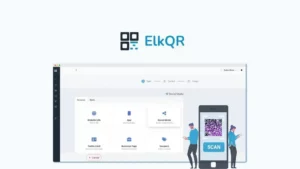Curious about cloud certification? It’s a hot topic in the tech world, and for good reason! Dive in to discover how these certifications can boost your IT career.
Introduction to Cloud Certifications
If you’re looking to advance in tech, cloud certifications are a great way to begin. These credentials show that you have the skills needed for cloud computing jobs. With more businesses moving to the cloud, having these certifications can make you much more attractive to employers.
What Are Cloud Certifications?
Cloud certifications are official recognitions that prove your knowledge and skills in cloud technologies. They are offered by major cloud service providers like Amazon Web Services (AWS), Microsoft Azure, and Google Cloud. Each certification has different levels, from beginner to advanced.
Why Get Certified?
Getting a cloud certification can help you stand out in a crowded job market. It shows that you are committed to learning and can handle cloud-based tasks. Many tech jobs now require some level of cloud knowledge or experience.
Types of Cloud Certifications
There are various types of cloud certifications. For instance, AWS offers certifications for architects, developers, and IT professionals. Microsoft Azure has similar paths. Picking the right one depends on your career goals and interests.
How to Prepare for Certification
Preparing for cloud certification is easier than you might think. Many online platforms offer courses and practice exams. You can study at your own pace, which can help you feel ready and confident. Hands-on labs are also a great way to gain real-world experience.
Next Steps
After gaining a certification, keep learning! The tech world is always changing. New tools and updates are frequent. Staying current means taking more courses and following tech news.
In summary, cloud certifications are a valuable asset for anyone looking to thrive in the tech industry. They’re your ticket to better job opportunities and career advancements.
Why Cloud Skills are in Demand

Cloud skills are super important these days. Companies are shifting to cloud services more than ever. This change means they need skilled workers to manage these systems.
The Growth of Cloud Computing
Cloud computing allows businesses to store data online instead of on local computers. This helps teams access information from anywhere. As businesses rely on this technology, the demand for cloud skills rises.
Job Opportunities
Many job openings require cloud skills. Roles like cloud engineer, cloud architect, and cloud security expert are all in high demand. These positions often offer good salaries and career growth.
Flexibility and Cost Savings
Cloud services are more flexible and often cheaper than traditional IT methods. Companies prefer hiring people with cloud skills to help them save money and adapt quickly.
Security Needs
As more data moves to the cloud, security becomes vital. Companies seek workers knowledgeable in cloud security. This need for protection keeps cloud skills relevant and important.
The Future of Work
The future workforce is becoming increasingly tech-focused. Cloud skills will likely be part of many job descriptions moving forward. Staying updated with cloud technology can secure your place in the job market.
In summary, the demand for cloud skills is on the rise. Those equipped with these skills can find better jobs and rewarding careers.
Overview of CompTIA Cloud Essentials
The CompTIA Cloud Essentials certification is a great starting point for cloud professionals. It covers the basics of cloud computing and helps you understand how cloud services work. This certification is ideal for those new to the cloud.
What You’ll Learn
In this course, you’ll learn about key cloud concepts, services, and models. You’ll also get an overview of cloud computing benefits and risks. This knowledge helps you make smart decisions about using cloud technology.
Who Should Take It?
This certification is perfect for IT staff, business leaders, and anyone interested in cloud technologies. No prior cloud experience is required, making it accessible to many.
Benefits of Getting Certified
By earning this certification, you show potential employers that you have the right knowledge. It can boost your career opportunities and increase your earning potential. Many companies look for candidates with cloud skills.
Exam Details
The exam consists of multiple-choice questions and covers various topics. It usually takes about 60 minutes to complete. To pass, you need a score of 650 or higher out of 900.
Preparation Resources
To prepare for the CompTIA Cloud Essentials exam, you can find many resources online. Training courses, study guides, and practice exams are available. Using these tools helps you feel confident when taking the test.
Overall, the CompTIA Cloud Essentials certification is a fantastic way to kick-start your cloud career. It’s a respected credential that helps you enter the fast-growing cloud job market.
Exploring Azure Cloud Security

Azure Cloud Security is a key focus for many businesses today. With more data stored online, keeping that data safe is very important. Microsoft Azure offers various features to protect your information.
What is Azure Cloud Security?
Azure Cloud Security includes tools and policies to safeguard data in the Azure platform. It protects against threats and helps ensure compliance with regulations.
Key Features
Some key features of Azure security include identity management, encryption, and threat protection. Identity management ensures that only authorized users can access your data. Encryption protects your data both at rest and in transit.
Importance of Threat Detection
Azure provides advanced threat detection tools. These tools help spot unusual activities that could indicate security breaches. Quick detection allows for faster responses to potential threats.
Compliance Standards
Azure is compliant with many industry standards, such as GDPR and HIPAA. Being compliant helps businesses avoid legal issues and build trust with customers. Understanding Azure’s compliance features can benefit your organization’s security strategy.
Best Practices for Azure Security
To enhance security in Azure, follow best practices like using strong passwords and enabling multi-factor authentication. Regularly update your security settings and monitor your systems for any unusual activity. Training staff on security policies is also essential.
By focusing on Azure Cloud Security, businesses can create a safer environment for their data. Investing in security is investing in your future.
AWS Security Management Fundamentals
AWS Security Management Fundamentals cover the basics of keeping data safe in the cloud. Amazon Web Services (AWS) offers many tools to help manage security effectively.
Understanding AWS Security
AWS security includes several layers of protection. These layers help secure data, manage access, and monitor activities. Understanding these layers is key to maintaining strong security.
Identity and Access Management
Identity and Access Management (IAM) is crucial in AWS. It controls who can access your resources. You can set permissions for users and groups easily. This ensures that only the right people have access.
Data Encryption
Data encryption is another important aspect. AWS provides options to encrypt your data both at rest and in transit. This means that even if someone accesses your data, it will remain unreadable without the right keys.
Monitoring and Logging
Monitoring your AWS environment helps you spot issues early. AWS CloudTrail records user activity and API usage. This information can alert you to unauthorized access attempts or other security concerns.
Compliance and Best Practices
AWS helps you meet various compliance requirements. You can use built-in tools to check your settings against standards like GDPR and HIPAA. Following best practices is essential to maintaining security.
By mastering AWS Security Management Fundamentals, you gain skills to protect cloud resources. These skills are vital for anyone working in cloud security.
Benefits of Cloud Certifications

Cloud certifications offer many benefits for your career. They help you gain skills that are in high demand in the tech industry.
Boost Your Employability
Having a cloud certification on your resume can make you stand out to employers. Companies look for candidates who are skilled in cloud technologies. This can give you an advantage over others who don’t have certifications.
Higher Earning Potential
Certified cloud professionals often earn more than their non-certified peers. Investing time in obtaining a certification can lead to better job offers and higher salaries.
Structured Learning Path
Cloud certifications provide a clear learning path. They guide you through key concepts and skills you need to succeed. This helps you focus on learning what really matters in cloud computing.
Networking Opportunities
Obtaining a certification can connect you with other professionals in the field. You can join online forums and local meetups to share experiences and knowledge. Networking can open doors to new job opportunities.
Professional Growth
Cloud certifications help you grow your existing skills. They push you to stay updated with the latest technology trends. Continuous learning is essential in the fast-changing tech industry.
In summary, cloud certifications enhance your knowledge, boost career prospects, and increase your earning potential. They’re a valuable investment for anyone looking to work in cloud computing.
Who Should Pursue these Courses?
Many people can benefit from taking cloud certification courses. Whether you’re new to the tech world or a seasoned professional, these courses can enhance your skills.
Beginners in the Tech Field
If you’re just starting your career, cloud courses are a great choice. They provide a solid foundation in cloud technology. You’ll learn essential skills that many employers look for.
IT Professionals Seeking to Upskill
If you already work in IT, pursuing cloud certifications can help you advance. These courses deepen your understanding of cloud services and improve your job prospects. They allow you to specialize in specific areas like cloud security or architecture.
Business Leaders and Managers
Business leaders should also consider these courses. Understanding cloud technology can help you make informed decisions. It enables you to guide your team in adopting the right cloud solutions.
Students and Recent Graduates
Students planning to enter the tech industry can gain an edge with cloud certifications. These credentials can make your resume stand out in a competitive job market.
Individuals Looking for Career Changes
If you’re thinking about a career change, cloud certifications are a smart option. They open doors to new opportunities in a growing field.
Overall, anyone interested in technology and looking to enhance their skills can benefit from cloud certification courses. They provide valuable knowledge for a successful career in the tech industry.
Certificates vs Official Accreditations

When it comes to cloud education, you’ll often hear about certificates and official accreditations. Both can be important, but they serve different purposes.
What Are Certificates?
Certificates are typically awarded after completing a course or training program. They show that you have learned specific skills. These can be helpful when starting your career or transitioning to a new field. However, certificates can vary in value depending on the provider.
What Are Official Accreditations?
Official accreditations are more recognized by industry professionals. They usually come from trusted organizations, like CompTIA or AWS. These accreditations follow strict guidelines and often require passing a challenging exam.
Value in the Job Market
When hiring, many companies look for official accreditations more than simple certificates. Accreditations can give employers confidence that you have the skills needed for the job. They often have higher credibility.
Which One Should You Choose?
If you’re new to the field, starting with certificates can be beneficial. They help you gain foundational skills. As you advance, pursuing official accreditations is wise. This can improve your job chances and earning potential.
Balancing Both
Using both certificates and certifications can be a smart strategy. Each offers different benefits. Combining them can help you build a strong resume that attracts employers.
In summary, understanding the difference between certificates and official accreditations is important. Each has its place in your educational journey.
Conclusion and The Path Forward
As the cloud industry grows, so does the need for skilled professionals. Pursuing cloud certifications can open many doors for your career.
Embrace Continuous Learning
Stay updated with the latest cloud trends and technologies. Continuous learning helps you stay relevant in this fast-paced field. Many online resources and courses are available to help you grow.
Networking
Connect with fellow professionals in the cloud community. Attend workshops, webinars, or local meetups. Networking can lead to job opportunities and collaboration.
Set Clear Goals
Define your career goals and identify the certifications that align with them. This approach gives you direction and helps you stay focused on your path.
Take the First Step
If you haven’t started your cloud certification journey, now’s the time! Discover available learning materials and choose a course that fits your needs. The journey may be challenging, but the rewards are worth it.
Overall, investing in cloud education benefits you and the companies you work for. As you gain knowledge and skills, you’ll find more opportunities in the tech world.




